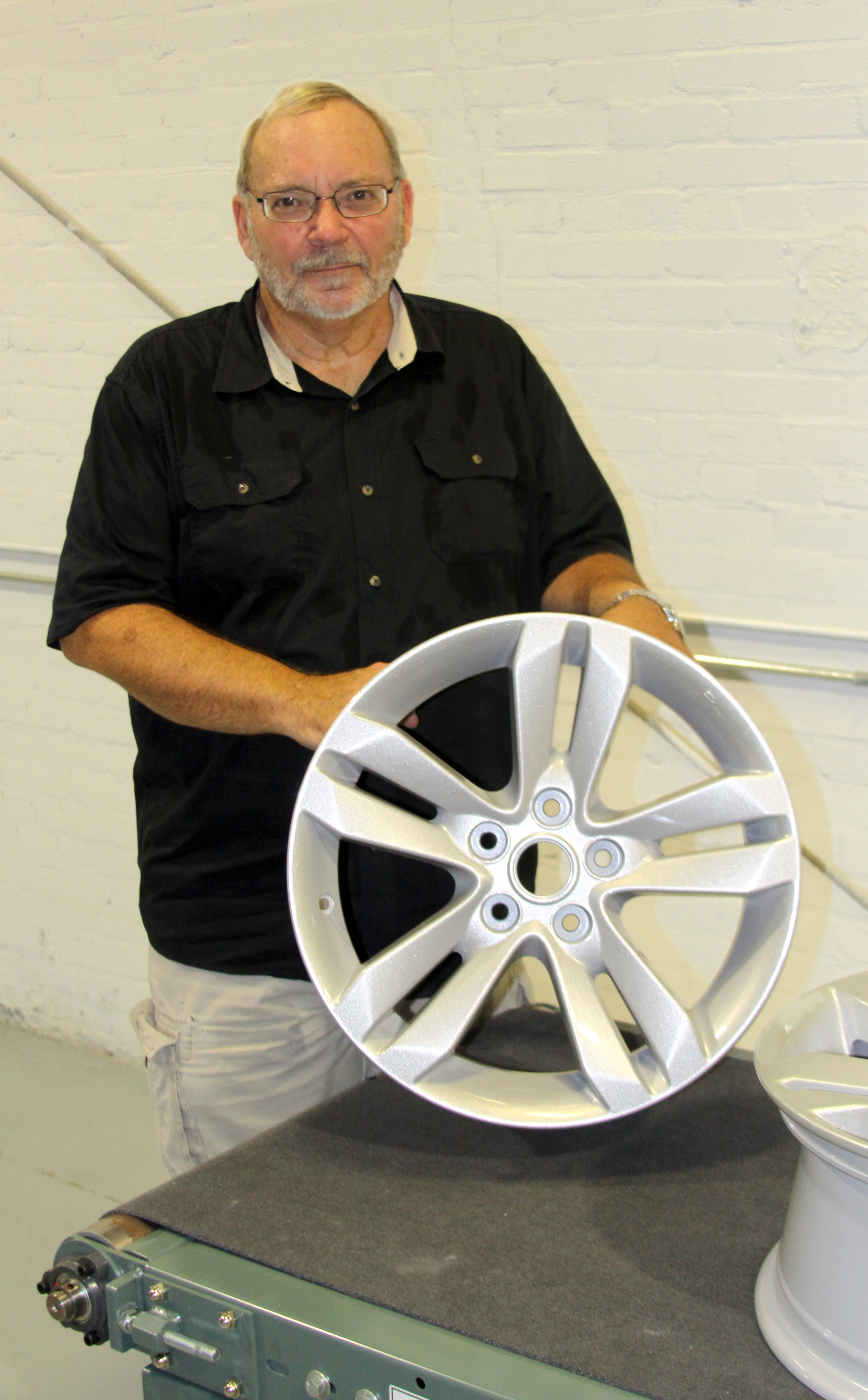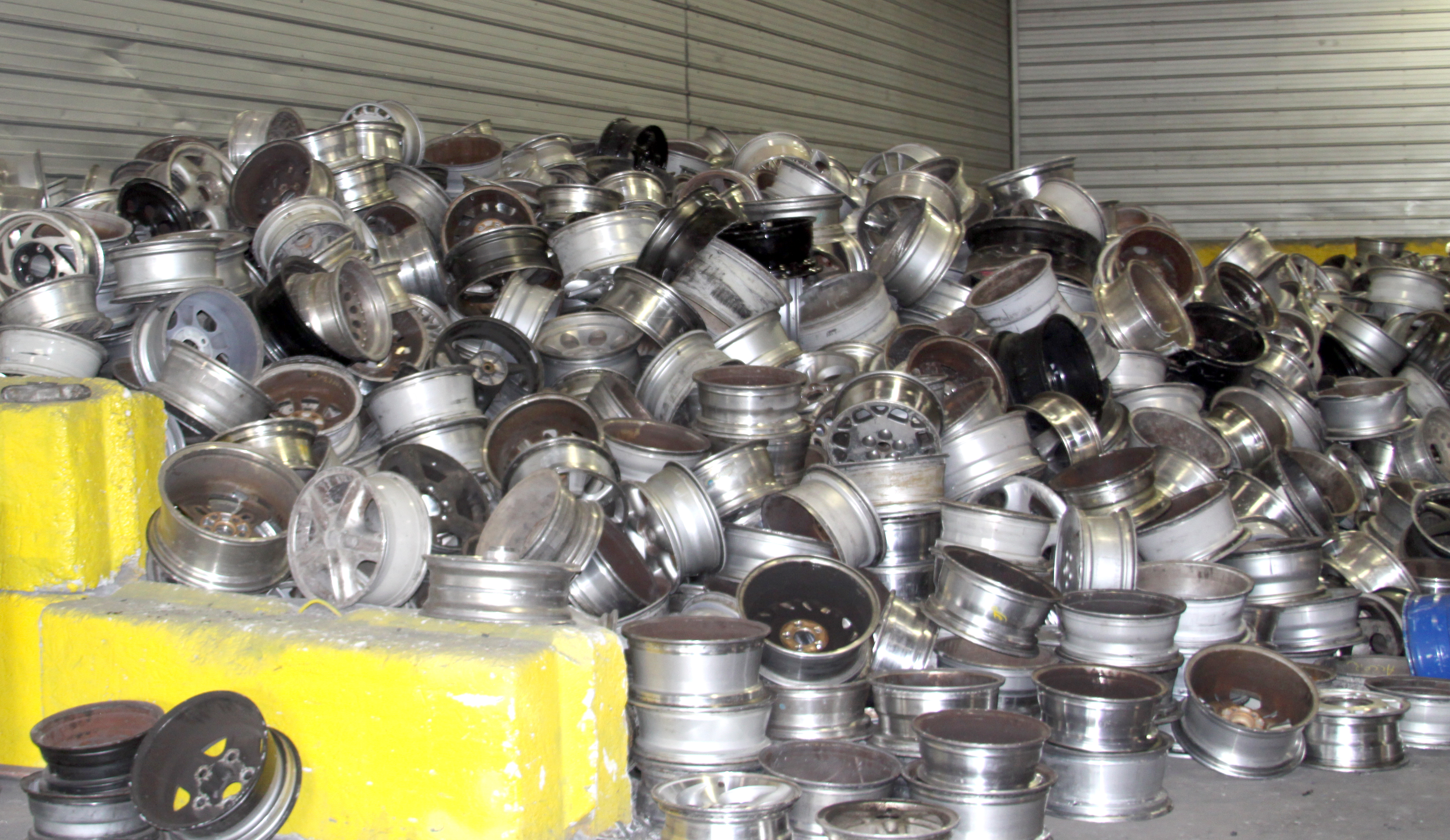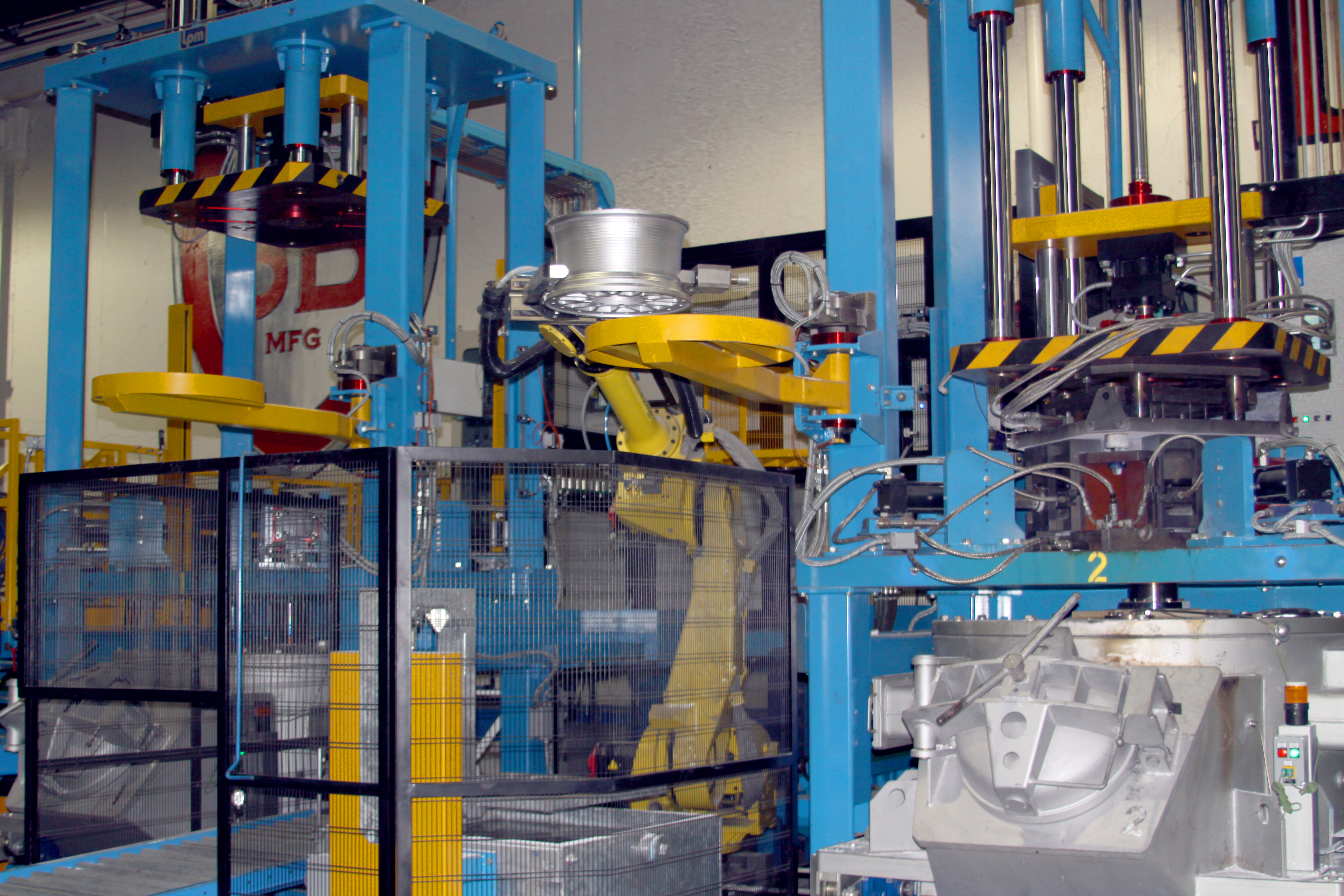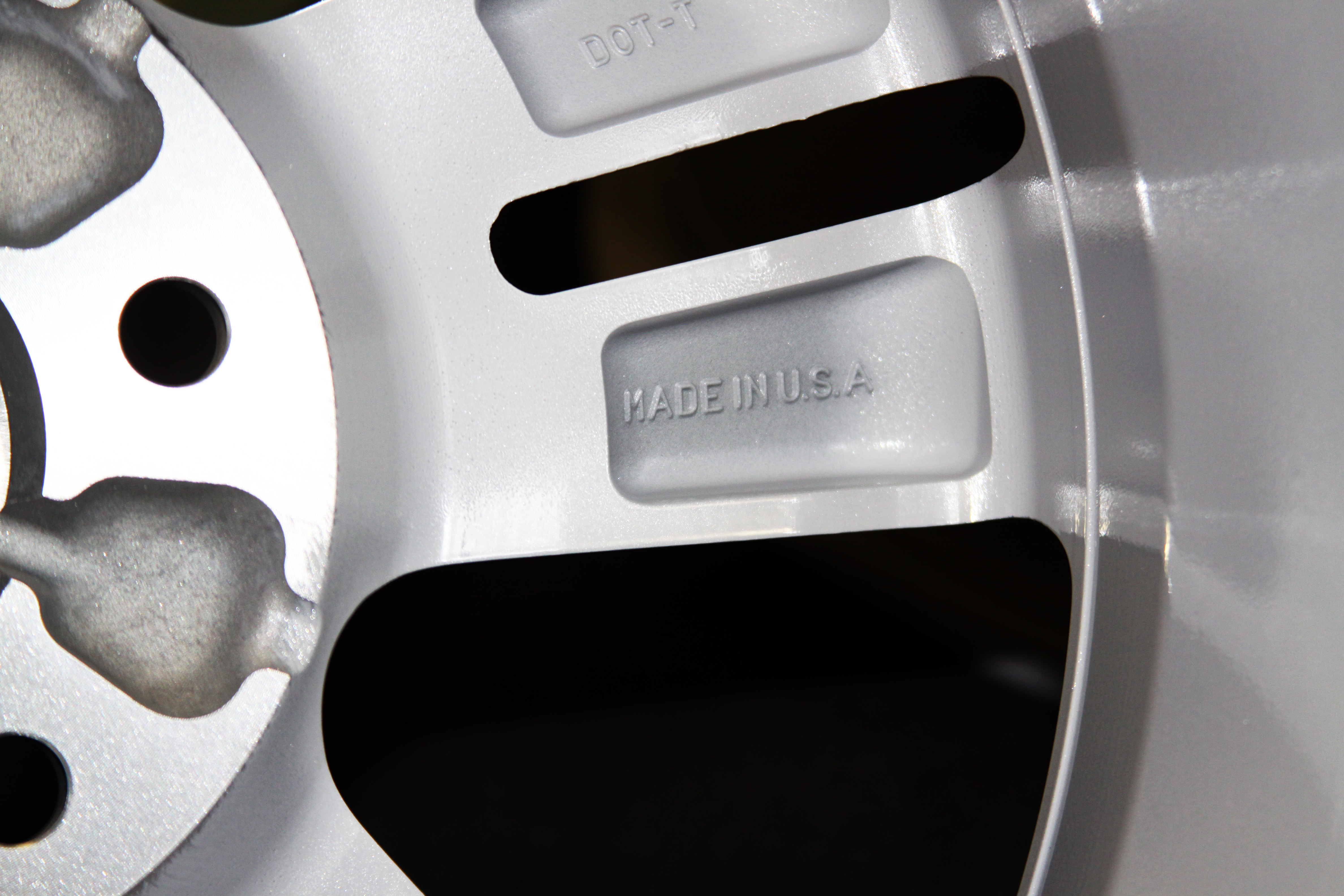While his wife was distracted attending law school, John Stiefel built a furnace.
Not to warm their home, but to smelt scrap metal. Built on a trailer, he towed it to scrap yards and converted aluminum scrap into ingots that could be resold for higher profit. 
Now he melts scrap aluminum wheels and makes them into … new wheels.
“We have developed a proprietary recycling process that doesn’t damage or degrade the aluminum as we smelt it,” John Stiefel explains. “And that superior product can be used – unaltered – to produce new wheels.”
Stiefel has two companies in Dade City, Fla. Stiefel Aluminum acquires scrap aluminum wheels and smelts them. Some of the aluminum is made into ingots for resale, but the rest is transported to his other company, SB Manufacturing, which produces aftermarket and “replica” wheels to replace damaged OEM wheels.
“Customers were buying our ingots to make them into new wheels,” said Stiefel. “Which made us realize we could do the same thing and skip cooling, transporting and re-melting ingot completely.”
Ring Power Partner
The foundry, Stiefel Aluminum, started as a Ring Power Lift Trucks service customer, eventually buying a couple of forklifts to move product and lift it into the furnaces.
With the addition of SB Manufacturing, there was the need to transport a crucible of molten aluminum to the casting machinery – to accomplish this, SB Manufacturing purchased a new Cat 12,000 lb. lift truck. 
On the SB side, compressed air is integral. They use it to automate the casting, heat treatment and x-ray (quality control) machinery; it is also used to power the machining, polishing and paint line in the finishing facility.
To meet their compressed air needs, they turned to Ring Power Air Compressor Representative Jason Stone – who set them up as an “air over the fence” customer.
“Their needs were very specific,” explained Stone. “With the air interacting with molten aluminum in casting and also being used for high-quality finishes, they needed it to be very dry and free of
contaminants.”
To accomplish this, Ring Power installed two Sullair compressors, a 125 h.p. variable-speed unit and a 75 h.p. unit – both with receivers and desiccant dryers. SB purchased separate delivery systems – one in the casting room, the other in the finishing facility – that feature 3-inch piping with more than 30 air drops.
Transair aluminum piping was selected because it is resistant to corrosion, minimizing impurities and turbulence. The system also features special fittings and valves that allow it to be installed and modified quickly.
“Plus, the product really looks great for customers – like John – who like to show off their facilities,” said Stone, who added that project is one of the largest Transair installations that Ring Power has undertaken. (Ring Power uses Transair piping at their own facilities.)

As an “air over the fence” customer Stiefel purchases the compressed air (at a determined pressure, temperature and humidity) from Ring Power – rather than the compressors and associated equipment. This arrangement allows Stiefel to avoid the typical headaches and cost fluctuations associated with equipment ownership, and allows Ring Power to control the other variables – such as maintenance, replacement schedules and equipment selection – ensuring both get the biggest bang for the buck.
How’d they get here?
Stiefel started his first foundry in 1992 in Ohio with the furnace on a trailer. He sold that business in 2000 and moved to New York. He later he opened another foundry in Watertown, N.Y.
On a particularly cold day – while gathered around a furnace for warmth – his son quipped “Dad, there has to be a better place to do this.” So on a family trip to St. Simon Island, Ga., they began to explore warmer locations.
They started by looking at scrap yards that could provide the raw material they needed (wheels). There were some in Georgia, a slightly higher number closer to Jacksonville, but hundreds in Central Florida. So they started looking near Tampa, eventually securing a location in Lakeland to “test the waters.”
Once he confirmed his process worked in Florida and the material supplies proved reliable, he started looking for bigger facilities. He landed in the Dade City Business Park in the former Lykes Pasco Beverage plant.
The wheels are in motion
In September, SB started selling wheels – made from 100% recycled aluminum – and the casting room shifted to round-the-clock production. Additional casting machines are also being added.
“We are competing with the Chinese,” said Stiefel. “And we can do it because our high-quality recycled aluminum allows us to control material costs. We’re bringing jobs and manufacturing back to America. And customers tell us they love the fact they are able to buy wheels with ‘Made in the USA’ stamped right on them.”
As production increases toward the goal of one million wheels annually (expected in 2014) Stiefel Aluminum will phase out ingot production and focus exclusively on supplying SB Manufacturing with molten aluminum. 
Stiefel Aluminum currently employs 25 (and expects to add up to 10 more) and SB plans to have 70 employees when they reach full production.
“Honestly, I didn’t need to do this … I had enough money to buy groceries the rest of my life,” said Stiefel. “But how often do you get an opportunity like this? To do something for your country? We’re bringing jobs back. I’m proud of that … every time I talk about it, I get a little choked up.”